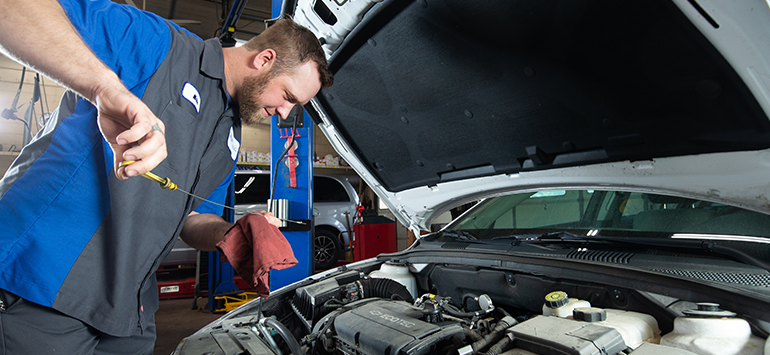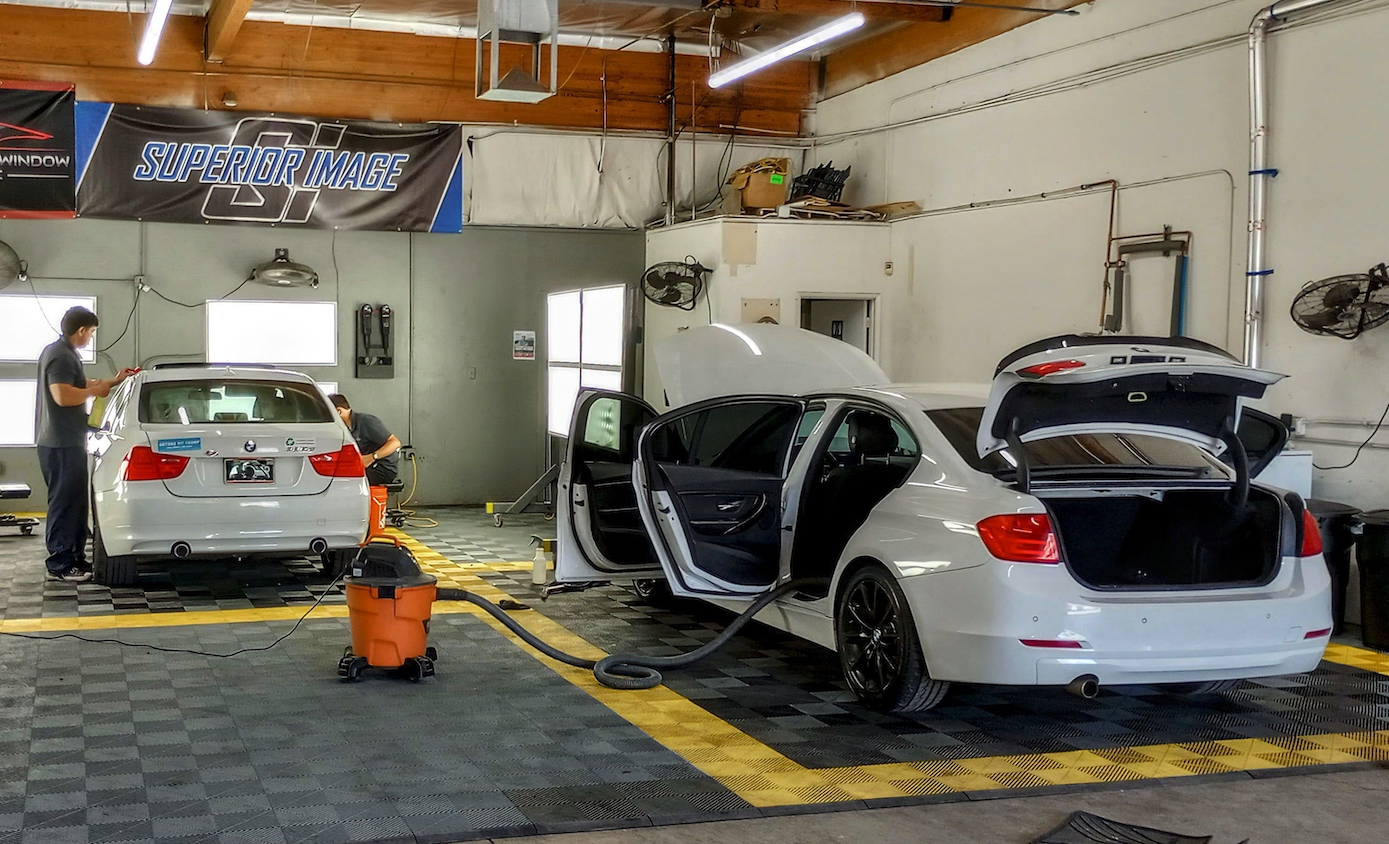Your lorry's gas injectors play an important role in delivering the best quantity of fuel to the engine for burning, aiding it run efficiently. Over time, gas injectors can experience problems due to clogging, use, or breakdown, which can lead to poor engine efficiency, decreased gas effectiveness, and costly repair services.
Harsh Engine Idle: If your engine runs roughly or hesitates while idling, maybe as a result of stopped up or defective injectors that are not providing the right gas quantity. Poor Acceleration and Power Loss: A lack of power or hesitation when increasing is an indication that your gas injectors aren't supplying enough gas to the engine. Check Engine Light: If the gas injectors are malfunctioning, the vehicle's analysis system might trigger the check engine light. This can happen when the injector falls short to deliver gas effectively, causing misfires or ineffective combustion. Enhanced Gas Usage: A decrease in gas economy can be caused by damaged injectors, which can either supply as well little or too much fuel, leading to less efficient burning. Engine Misfires: If the fuel injectors are not functioning properly, the engine may misfire, triggering harsh operation and loss of power. Gas Smell or Leakages: A fuel leakage or a noticeable smell of gas around the engine can indicate a fractured or harmed fuel injector. This can be harmful and needs immediate interest. 2. Tidy the Gas Injectors. Among one of the most common sources of fuel injector concerns is blocking. Over carbon, time and debris can build up in the injectors, blocking the flow of fuel. Cleansing the injectors can often restore correct efficiency and performance.
![]()
There are several means to clean fuel injectors:
Fuel Ingredients: You can attempt including a fuel injector cleansing additive to your gas tank. This technique works by liquifying carbon down payments and various other contaminants in the fuel injectors. Injector Cleaning Kits: For an extra thorough cleansing, you can use an injector cleansing package that affixes to your car's fuel rail. This method pushes a cleaner straight right into the fuel injectors to damage down persistent accumulation. Professional Cleaning: If the obstructing is severe, you might require to have your fuel injectors cleaned up by a professional. A mechanic can eliminate and clean up the injectors making use of customized equipment to eliminate any deep-rooted pollutants. 3. Examine the Fuel Injectors. An auto mechanic can use a gas pressure scale and diagnostic tools to evaluate whether the injectors are functioning appropriately. The technician will examine the injector's spray pattern, fuel shipment, and electric links to determine if it's executing as it should.
![]()
Replacing a fuel injector normally requires getting rid of the gas rail and separating electric and gas lines. This can be an intricate work, and incorrect installment might result in leakages or other issues, so it's advisable to have a mechanic perform the replacement.
Gas Filter: A stopped up fuel filter can stop proper gas circulation to the injectors. Changing the gas filter can make sure that the injectors receive the appropriate quantity of clean gas. Fuel Pump: A malfunctioning fuel pump can lead to reduced fuel stress, affecting exactly how much fuel is supplied to the injectors. If the pump is not working effectively, it might require to be replaced to prevent future injector troubles. 6. Preventative Steps. To avoid gas injector concerns in the future, comply with these simple maintenance tips:
![]()
Use High-Quality Fuel: Cheap, low-quality fuel can include pollutants that clog fuel injectors gradually. Always choose top quality fuel from reputable stations to minimize the risk of contaminants entering your gas system. Routine Gas System Cleaning: Use gas system cleaners periodically to avoid carbon build-up in your injectors. This can help maintain their efficiency and stop clogging. Replace the Gas Filter: A clean fuel filter makes certain that your injectors obtain the correct amount of fuel, minimizing the chances of clogging or breakdown. Drive Routinely: Infrequent driving can create fuel to deteriorate, which may lead to injector blocking. Try to drive your vehicle consistently to keep the gas system in great condition. Final thought. Gas injectors are essential for maintaining your car's performance and fuel efficiency. By acknowledging the signs of a faulty injector, cleaning or replacing it when essential, and resolving other gas system parts, you can stay clear of significant engine problems and keep ideal vehicle performance.
- Identify the Signs of a Faulty Fuel Injector. When something is incorrect, the first step in repairing concerns with your cars and truck's gas injectors is to recognize. Below are some typical indicators that suggest gas injector issues:
Harsh Engine Idle: If your engine runs roughly or hesitates while idling, maybe as a result of stopped up or defective injectors that are not providing the right gas quantity. Poor Acceleration and Power Loss: A lack of power or hesitation when increasing is an indication that your gas injectors aren't supplying enough gas to the engine. Check Engine Light: If the gas injectors are malfunctioning, the vehicle's analysis system might trigger the check engine light. This can happen when the injector falls short to deliver gas effectively, causing misfires or ineffective combustion. Enhanced Gas Usage: A decrease in gas economy can be caused by damaged injectors, which can either supply as well little or too much fuel, leading to less efficient burning. Engine Misfires: If the fuel injectors are not functioning properly, the engine may misfire, triggering harsh operation and loss of power. Gas Smell or Leakages: A fuel leakage or a noticeable smell of gas around the engine can indicate a fractured or harmed fuel injector. This can be harmful and needs immediate interest. 2. Tidy the Gas Injectors. Among one of the most common sources of fuel injector concerns is blocking. Over carbon, time and debris can build up in the injectors, blocking the flow of fuel. Cleansing the injectors can often restore correct efficiency and performance.

There are several means to clean fuel injectors:
Fuel Ingredients: You can attempt including a fuel injector cleansing additive to your gas tank. This technique works by liquifying carbon down payments and various other contaminants in the fuel injectors. Injector Cleaning Kits: For an extra thorough cleansing, you can use an injector cleansing package that affixes to your car's fuel rail. This method pushes a cleaner straight right into the fuel injectors to damage down persistent accumulation. Professional Cleaning: If the obstructing is severe, you might require to have your fuel injectors cleaned up by a professional. A mechanic can eliminate and clean up the injectors making use of customized equipment to eliminate any deep-rooted pollutants. 3. Examine the Fuel Injectors. An auto mechanic can use a gas pressure scale and diagnostic tools to evaluate whether the injectors are functioning appropriately. The technician will examine the injector's spray pattern, fuel shipment, and electric links to determine if it's executing as it should.

- Replace Faulty Gas Injectors. It might be time to change them if screening reveals that one or more of your injectors are harmed past repair service. Changing a fuel injector entails eliminating the old injector, setting up a new one, and guaranteeing all links are safe. While some proficient DIYers may try this job, it's commonly best delegated a professional to avoid problems and ensure the substitute is done correctly.
Replacing a fuel injector normally requires getting rid of the gas rail and separating electric and gas lines. This can be an intricate work, and incorrect installment might result in leakages or other issues, so it's advisable to have a mechanic perform the replacement.
- Inspect the Gas System. In some cases, gas injector problems can be the result of issues with the overall fuel system. A stopped up fuel filter or stopping working fuel pump can influence the efficiency of the injectors. Prior to changing injectors, it's a great concept to have the whole gas system inspected.
Gas Filter: A stopped up fuel filter can stop proper gas circulation to the injectors. Changing the gas filter can make sure that the injectors receive the appropriate quantity of clean gas. Fuel Pump: A malfunctioning fuel pump can lead to reduced fuel stress, affecting exactly how much fuel is supplied to the injectors. If the pump is not working effectively, it might require to be replaced to prevent future injector troubles. 6. Preventative Steps. To avoid gas injector concerns in the future, comply with these simple maintenance tips:

Use High-Quality Fuel: Cheap, low-quality fuel can include pollutants that clog fuel injectors gradually. Always choose top quality fuel from reputable stations to minimize the risk of contaminants entering your gas system. Routine Gas System Cleaning: Use gas system cleaners periodically to avoid carbon build-up in your injectors. This can help maintain their efficiency and stop clogging. Replace the Gas Filter: A clean fuel filter makes certain that your injectors obtain the correct amount of fuel, minimizing the chances of clogging or breakdown. Drive Routinely: Infrequent driving can create fuel to deteriorate, which may lead to injector blocking. Try to drive your vehicle consistently to keep the gas system in great condition. Final thought. Gas injectors are essential for maintaining your car's performance and fuel efficiency. By acknowledging the signs of a faulty injector, cleaning or replacing it when essential, and resolving other gas system parts, you can stay clear of significant engine problems and keep ideal vehicle performance.
Navigation
Home
Latest Posts
Drive the Mazda Method with Jake Sweeney Mazda
Published May 26, 25
1 min read
Why Choose Jake Sweeney Mazda Licensed Pre-Owned?
Published May 25, 25
1 min read
Why Choose Jake Sweeney Mazda Licensed Pre-Owned?
Published May 21, 25
1 min read